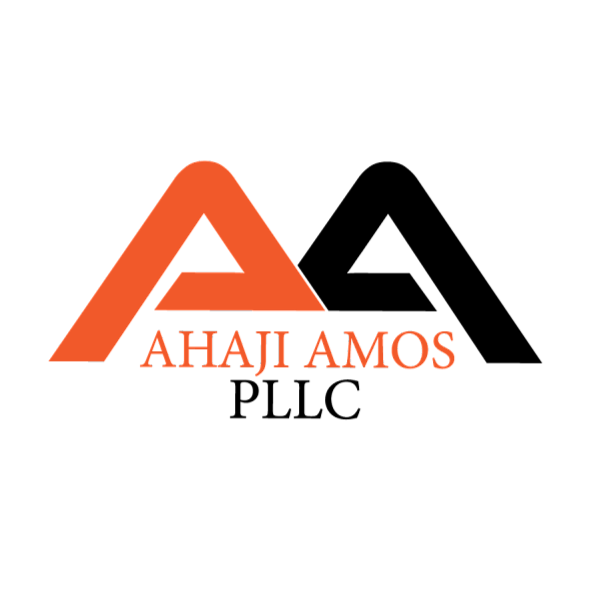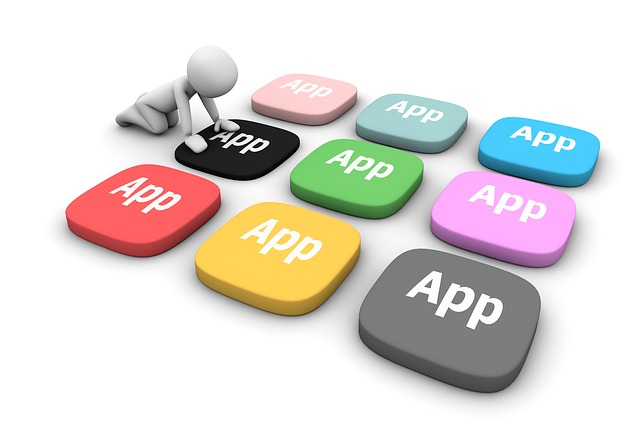
BLOG
Congress Address How Patents Impact Drug Prices
Congress holds hearings on the impact of drug patents on pharmaceutical prices.
IP FOR THE BUSINSS LAWYER PRESENTATION
IP Law Overview | Patent Law | Trademark Law | Trade Secret Law | Copyright Law
I recently presented a continuing legal education course that explained patents, trademarks, copyrights and trade secret law to business attorneys. This is a great overview of intellectual property law for all.
Ahaji Amos, PLLC
More Than Your Average IP Boutique
Ahaji Amos is patent and trademark attorney with 17 years of experience in intellectual property litigation and prosecution at Ahaji Amos, PLLC, a law firm that represents startup and small businesses in all matters including patent prosecution, trademark prosecution, copyrights, trade secrets, oppositions, cancelations, equity funding and commercial litigation. Ahaji Amos, PLLC is dedicated to representing entrepreneurs, inventors, and innovators.
This article is for information and advertising purposes and does not constitute legal advice. No attorney-client relationship is formed in the absence of a fully written and executed engagement agreement between Ahaji Amos, PLLC and its clients. Ahaji Amos can be reached at ahaji@ahajiamos.com. More information can be found at https://ahajiamos.com.
I’m on YouTube!
Ahaji Amos, PLLC
YOU CAN PATENT NATURAL HAIR CARE PRODUCTS, HERE ARE 5 WAYS TO PROTECT YOUR NEW PRODUCT
natural hair care products | patent my hair care product | patent my natural hair care product | can I patent my natural hair care products
Many black women have decided to transition from relaxed to natural hair texture. Although this is a beautiful and empowering experience, it can often be a real struggle. When transitioning from relaxed to natural (and even after transition), retaining moisture and proper detangling is key. Therefore, products designed to make natural hair more manageable are essential to the ladies who rock natural hair! Hence, the natural hair care industry can be very lucrative if you have developed a must have product for natural hair. For example, Gwen Jimmere, founder and CEO of Naturalicious, recently made history for being the first black woman to receive a patent for a natural hair care product developed for and targeted to women with curly, coily and kinky hair textures. Obtaining intellectual property is essential for your brand recognition and to facilitate strengthening consumer loyalty. Do you have a natural hair care product that you would like to protect? If so, here are 5 ways you can protect your product.
1. Patent you natural hair care products.
Considering Jimmere’s success story, it should be obvious that you should consider applying for a patent to protection your brand. The benefits to applying for a patent for your products include, but are not limited to,
· ability to stop others from selling a competitive product; and
· increased profits.
Please see my article, “5 Reasons to Apply for a Patent” for an overview of why patent protection is important for your brand.
2. Is your natural hair care product a trade secret?
Contrary to patents, trade secrets are protected without registration, that is, trade secrets are protected without any procedural formalities. Consequently, a trade secret can be protected for an unlimited period of time. However, there are certain some conditions for the information to be considered a trade secret.
· The information must be secret (i.e. it is not generally known among, or readily accessible to, circles that normally deal with the kind of information in question).
· It must have commercial value because it is a secret.
· It must have been subject to reasonable steps by the rightful holder of the information to keep it secret (e.g., through confidentiality agreements).
It is important to note that compliance the conditions above may turn out to be more difficult and costlier
3. You can use trade/service marks to protect your natural hair care products.
Since a trademark is used to identify the source of goods or services and is used to distinguish the goods and services of one seller or provider from another, you could effectively market your brand by selecting a mark that you distinguish your products from your competitors. For example, when you see “LV” on a purse, you can identify the designer of the purse—even if the purse is a knock off.
4. Using copyrights to protect your natural hair care products.
Copyright law covers almost all forms of creative output, including
· commercial items (e.g., advertising copy),
· product photos,
· packaging illustrations
· websites
· Images used on your beauty product
· Video and music used in product advertising
· text on the beauty product itself or on product flyers,
· advertisements or inserts is also copyright-protected.
If you created the text or graphics yourself, then you are the copyright holder. If you hired someone else to create the material, then the contract between you and the artist should specify who holds the copyright to the materials to avoid any legal ambiguity about ownership.
5. Protecting your natural hair care products with a trade dress registration.
Trade dress generally refers to characteristics of the visual appearance of a product or its packaging that signify the source of the product to consumers. Trade dress is a type of trademark that refers to the image and overall appearance of a product. Trademarks protect brands and the goodwill associated with the brand.
Ahaji Amos is patent and trademark attorney with 17 years of experience in intellectual property litigation and prosecution at Ahaji Amos, PLLC, a law firm that represents startup and small businesses in all matters including patent prosecution, trademark prosecution, copyrights, trade secrets, oppositions, cancelations, equity funding and commercial litigation. Ahaji Amos, PLLC is dedicated to representing entrepreneurs, inventors, and innovators.
This article is for information and advertising purposes and does not constitute legal advice. No attorney-client relationship is formed in the absence of a fully written and executed engagement agreement between Ahaji Amos, PLLC and its clients. Ahaji Amos can be reached at ahaji@ahajiamos.com. More information can be found at https://ahajiamos.com.
I’m on YouTube!
Ahaji Amos, PLLC
CAN I GET A PATENT ON MY INVENTION?
Can I Get a Patent On My Invention | Is My Invention Patentable | What are the Types of Patents | What Can Be Patented
Can You Get a Patent on Your Invention? Here’s How to Know If Your Invention Can Be Patented
Patents are provided for in Article 1, Section 8, Clause 8 of the U.S. Constitution, which states:
The Congress shall have the power… [t]o promote the progress of science and useful arts, by securing for limited times to authors and inventors the exclusive right to their respective writings and discoveries.
Do you have an invention that you would like to patent? Do you know if your product even qualifies for a patent?
CATEGORY OF PATENTS
Utility Patent
Patent-Eligible Subject Matter: The subject matter for a utility patent can be a process, machine, composition of matter, manufacture, or any improvement thereof. To secure a utility patent, you must show that your invention is new, useful, and unobvious over the prior art (the previously known subject matter). The term of a utility patent is 20 years.
• Process is a method of treating material to produce a particular result or product. A process can also relate to a new use of a known composition, apparatus or the like.
• Machine is a device in which energy can be utilized to perform a useful operation (e.g., an apparatus with the required mechanical or electrical elements.)
• Composition of matter is a combination of two or more substances (e.g., chemical elements, chemical compounds, or other components).
• Manufacture is a category for the remaining statutory subject matter that is not a process, machine, or composition.
• Computer program.
• Business method.
Ineligible Subject Matter: Certain subject matter is not patentable such as:
• Laws of nature;
• Physical phenomena;
• Abstract ideas;
• Perpetual motion machine (deemed impossible); and
• No patent may issue on a claim directed to or encompassing a human organism.
Before 1998, mathematical algorithms were ineligible subject matter as well. Hence, a patent could not be obtained for a computer program encompassing an algorithm. However, you can get a patent for a machine that includes a programmed computer or for a process that performs a function utilizing a programmed computer. Thus, an algorithm is patentable if it is applied in a useful way. Specifically, if the algorithm is directed to a machine programmed to provide a useful, concrete and tangible result, it is important to note that an algorithm as merely an abstract idea is still unpatentable.
Design Patent
The design of an article of manufacture that is new, original and ornamental also qualifies for a design patent. Some courts have also required some degree of patentable distinction or inventive faculty (comparable to the non-obviousness requirement for utility patents). No description other than a reference to the drawing(s) is required for a design and the term of the patent is 14 years.
Plant Patent
If you invent or discover and asexually reproduce any distinct and new variety of plant, including cultivated sports, mutants, hybrids, and newly found seedlings (other than a tuber propagated plant or plant found in an uncultivated state), you can secure a patent on the plant. The description of your invention should be as complete as possible. The term of a plant patent is 20 years.
Patentability
You should investigate the patentability of your invention before you file a patent application to determine whether the subject matter of your device, process, or thing has been previously known to others. The test for patentability is whether your invention is new, useful, and unobvious over the prior art. If you are wondering if your invention qualifies for a patent, contact me today.
Ahaji Amos is patent and trademark attorney with 17 years of experience in intellectual property litigation and prosecution at Ahaji Amos, PLLC, a law firm that represents startup and small businesses in all matters including patent prosecution, trademark prosecution, copyrights, trade secrets, oppositions, cancelations, equity funding and commercial litigation. Ahaji Amos, PLLC is dedicated to representing entrepreneurs, inventors, and innovators.
This article is for information and advertising purposes and does not constitute legal advice. No attorney-client relationship is formed in the absence of a fully written and executed engagement agreement between Ahaji Amos, PLLC and its clients. Ahaji Amos can be reached at ahaji@ahajiamos.com. More information can be found at https://ahajiamos.com.
I’m on YouTube!
Ahaji Amos, PLLC











